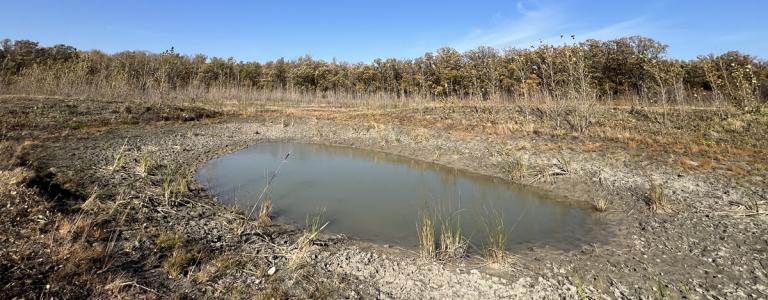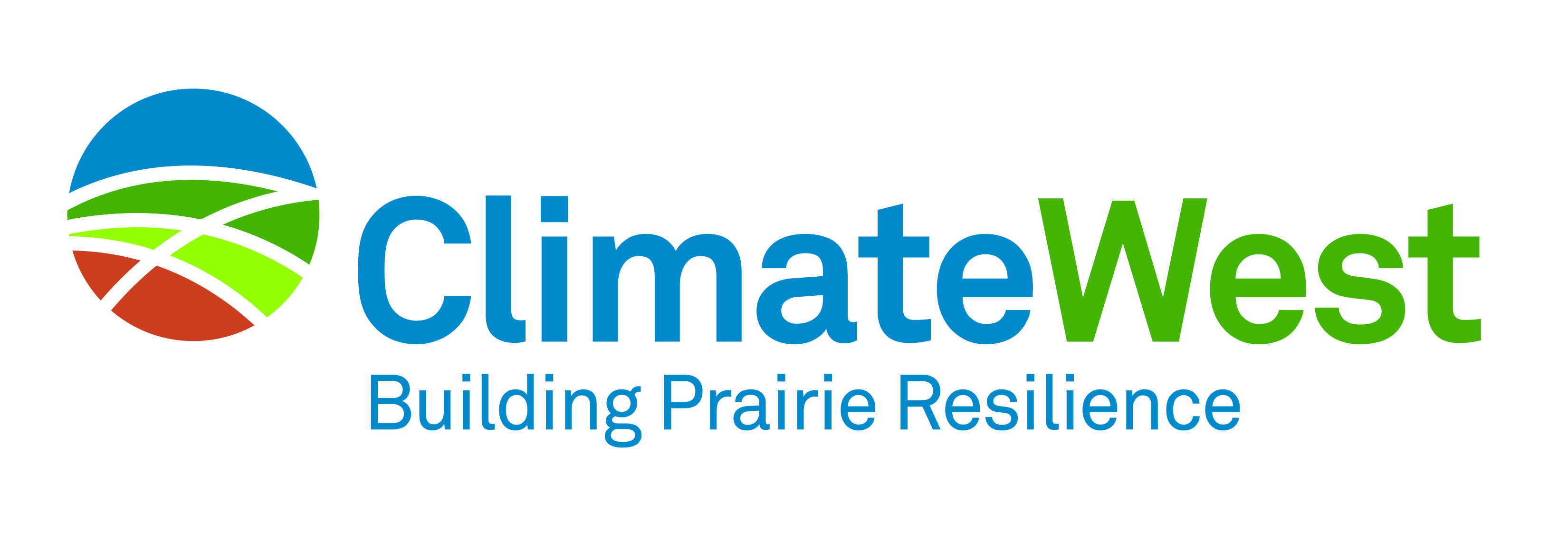Flood and Drought: Natural infrastructure as a dual defense
The Canadian Prairies have a long history of variable and extreme weather, shifting between periods of wet and dry and resulting in large variations in water availability between years and seasons. This variation in the availability of water leads to disasters that are all to familiar, and only anticipated to become more frequent and severe with climate change – flood and drought.
Natural infrastructure is gaining momentum as an approach to delivering infrastructure services (e.g., reliable water supply, improved water quality), while supporting watershed health and the resilience of communities. The role of natural infrastructure in flood protection is a more common application, while the use of natural infrastructure for drought mitigation is less understood.
The prairies are no stranger to drought and flood, sometimes even in the same year. Drought and flood can be considered two sides of the same coin, and there is real potential for natural infrastructure to be designed and implemented to address both at the same time.
This webinar brings together experts to build momentum around natural infrastructure to help with not only flood, but drought, too. We will discuss how drought and flood are anticipated to impact the Canadian Prairies in the future and share examples of natural infrastructure in practice, wrapping up with discussion and audience questions.
Some key takeaways from this webinar were:
- The climate across the Canadian Prairies is changing and projections for the future include more frequent drought and flood, due to hotter temperatures, changes to snow accumulation (critical to groundwater recharge and river levels), and heavy rainfall events.
- The climate will continue to warm until global GHG emissions are reduced to and maintained at net-zero. Once maintained, the climate will stabilize, but unfortunately, there is no going back to the climate of the past. Planning for a future with more extreme weather events is critical to reduce the impacts to infrastructure, livelihoods, and safety.
- Thanks to historical drainage and altered landscapes, many watersheds are nowhere near close to their maximum potential for water storage, a risky situation to be in when we consider how drought is anticipated to increase both in frequency and severity. We need creative solutions that “multi-solve”, addressing multiple issues and providing multiple benefits.
- This webinar shared natural infrastructure approaches that can both increase water storage capacity on the landscape and decrease the volume and velocity of flood waters, along with many more benefits.
- Effective wetland policy that conserves intact wetlands, as opposed to the ongoing wetland drainage which will only exacerbate the severity of flood and drought.
- Beaver dam analogues are small structures built to mimic beaver activity along streams and tributaries, storing water during higher stream flow and helping to maintain flow where stream levels drop, providing habitat for endangered West Slope Cutthroat Trout, supporting groundwater recharge, and maintaining water and forage for ranchers. Added bonus – areas with beaver dams have been found to be more resilient to wildfires.
- Water retention projects are growing in popularity across Manitoba, with funding to support implementation on agricultural land. With designs unique to each farm and the specific needs, water retention projects can use berms and water control structures to capture and store runoff, reduce the impacts of downstream flooding, help maintain surface water and forage, reduce damage to municipal and farm infrastructure, and in one project, even supplied water to an adjacent drinking water reservoir during drought, ensuring a supply of potable water for residents.
This webinar took place on October 29, 2024. Watch the full recording below or on YouTube.
Our Speakers
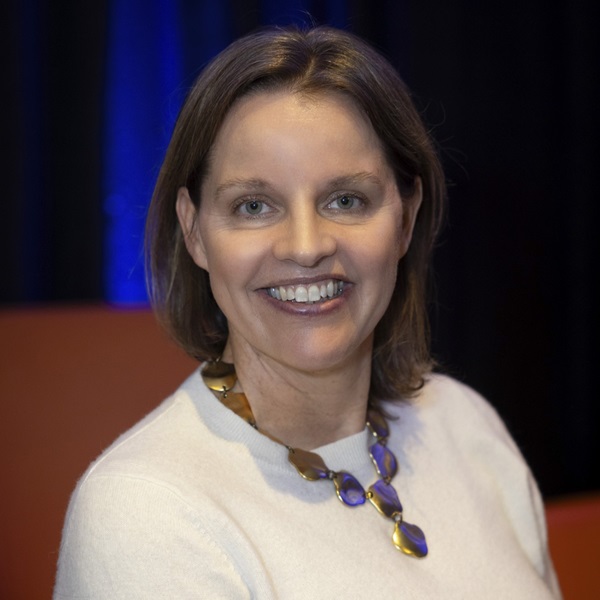
Dr. Heather Morrison has spent her career at the interface between science and decision-making. She has worked as a research scientist in the field of ecotoxicology, a senior science advisor and research manager in the field of air quality, and as director of the climate research division. These positions have provided Dr. Morrison with the opportunity to work closely with decision-makers to deliver relevant and credible science to support policy and regulatory development. Dr. Morrison received her BSc in Biological Sciences from Queen’s University and a PhD in Ecotoxicology from the University of Windsor.

Colin Whitfield is an Associate Professor in the School of Environment and Sustainability and the Global Institute for Water Security at the University of Saskatchewan. He is interested in understanding how pressures from human activities influence water resources and ecosystems, particularly at the watershed scale, and in working with partners to develop solutions to these challenges.
Colin’s research spans terrestrial to aquatic systems, including investigations of atmospheric pollution, catchment hydrochemistry, and aquatic greenhouse gas dynamics. He holds a BSc in Environmental Science from Simon Fraser University, and MSc and PhD degrees in Watershed Ecosystems from Trent University. Away from work, Colin enjoys spending time cycling, learning to ski, coaching soccer, and finding projects to do around the house.
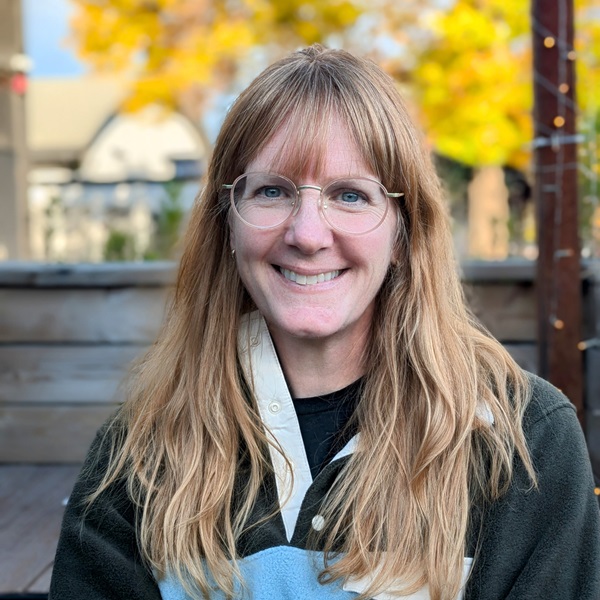
Lesley Peterson is a professional biologist based in Calgary, AB where she holds the position of Conservation Director with Trout Unlimited Canada. Lesley has been with Trout Unlimited Canada for over 16 years ago, holding various positions in that time. Her current role involves overseeing and guiding the organization’s conservation and restoration programming and policy development. She also represents Trout Unlimited Canada on various regional and national working groups including species at risk recovery teams. Whenever possible, she also gets out in the field to support her field crews with restoration projects.
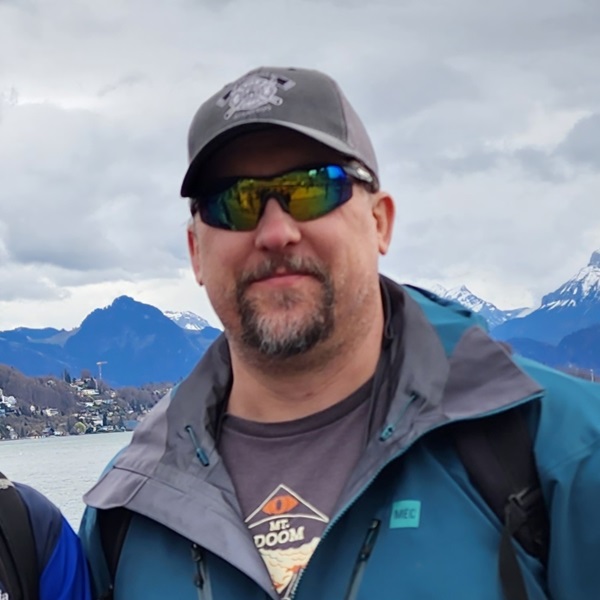
Justin Reid has been the Manager at the Redboine Watershed District since 2010 and has almost 20 years of experience in environmental and conservation industries. He lives with his family on a small acreage just outside Manitou, Manitoba and spends most of his free time traveling across Southern Manitoba following his kids in their various activities.
Our Moderator
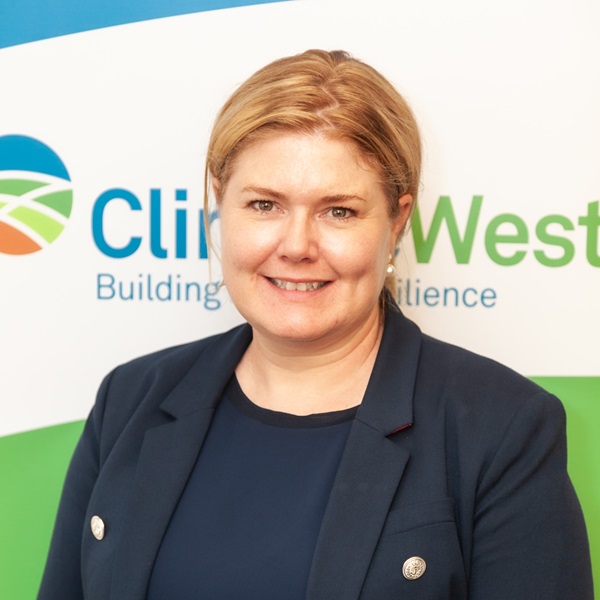
Kerra Chomlak is the Executive Director of ClimateWest, a regional climate services organization for Alberta, Saskatchewan and Manitoba. ClimateWest’s mandate is to build climate resilience by helping communities, businesses, non-profits and governments make informed climate adaptation decisions that are based on the best data and information, tailored to their needs.
Prior to ClimateWest, Kerra worked as Environment Manager at the City of Leduc, Alberta, where she developed and implemented the City’s plans for climate adaptation and greenhouse gas reduction. Kerra has also served as the Executive Director of the Clean Air Strategic Alliance, where she learned the value of bringing together diverse interests to address complex sustainability challenges.
Kerra has recently completed a Master of Arts in Climate Action Leadership from Royal Roads University. She lives on Treaty 6 Territory, in the Homeland of the Métis Nation, and in a region that is home to one of the largest Inuit populations south of the 60th parallel.
Resources:
- Policy Brief: Nature-based Solutions to mitigate impacts of droughts (atuk.com.ec)
- USask researchers navigating complex systems to preserve Prairie wetlands (University of Saskatchewan)
- Are you a beaver? Cause dam! (Trout Unlimited Canada)
- Video: How beaver dam analogues are built during a volunteer work day (Trout Unlimited Canada)
- Video Success Story: Boulton Farm Water Retention Project (Red River Basin Commission)
- How can we work with nature to tackle drought and desertification? (IISD)
- The cost-effectiveness of nature-based solutions for reducing disaster risk (Nature-based Solutions Initiative)
- Natural Infrastructure for Water Solutions (NIWS)
Thanks to our webinar series partner:
Funded in part by:
